Jethro Tull - Interview Part 2
by Lisa Torem
published: 29 / 4 / 2010
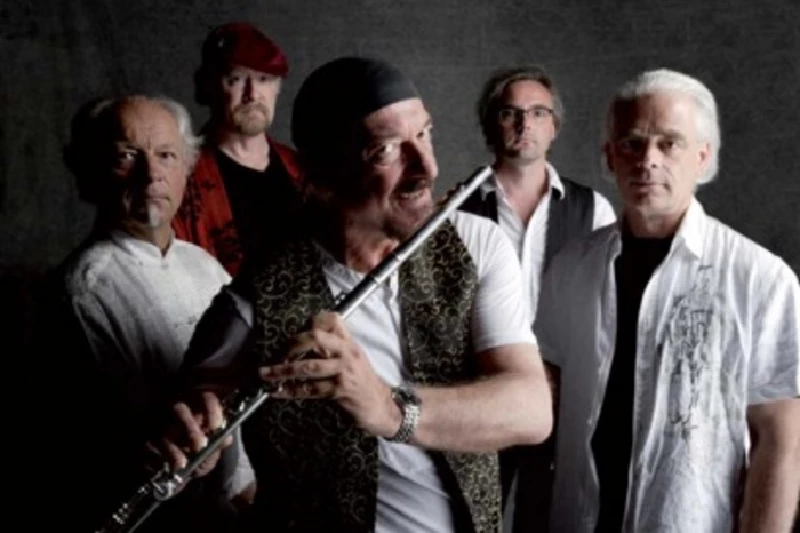
intro
while in the second part he speaks about his anger at the conflicts in both Afghanistan and his involvement in a campaign to save the Scottish wildcat
PB: I know that you did a five- city tour of India and that during that time there was a terrorist attack on Mumbai. You performed a benefit concert to raise money for the victims. Did that experience intensify your feelings about the culture? IA: Well, [there was] the resilience of the people of Mumbai following the terrorist attacks. It was very reminiscent of the general public in London during the Blitz in World War 2. I’m sure the same things happened in Dresden to German civilians in the Holocaust that was vented upon them as an act of vengeance by the Brits and the Americans and it was one of the most dastardly unnecessary things ever – I mean going after the factories and the military production is one thing. But, when you deliberately firebomb civilians and then try to sweep it under the carpet, which is what’s happened for the last 65 years, I think it was disgraceful. There was absolutely no need for Truman to send bombers in to blow the shit out of Japanese civilians – could have taken the top off Mount Fuji and made the point. It’s just no good going back, occasionally, looking at that piece of history and finding the same old tired ways of defending an incredibly inhuman act, and I’m afraid George Bush and Tony Blair, are people who, frankly, have a lot of blood on their hands and continue to get away with it. In my mind it’s not acceptable that history will continue to white wash those actions because people are too horrified to face the enormity of what actually occurred, and, the fact that there were alternatives, which really upsets me, and that, today, people will still defend –(Anderson’s voice implies helpless resignation) – ‘what else could we do?’ Well, there were plenty of other things Blair and Bush could have done. They could have left the weapons inspectors in Iraq. The could have continued to hobnail Saddam Hussein, until, rather like Gadaffi, a few years later, saw the light and decided to rewrite his entry in the history books of the world and turned into being, if not a good guy, then not just an evil guy. We didn’t know back then that Oudi – the evil son – was already much brain-dead as a result of an assassination attempt and ultimately posed no threat as a successor to Saddam Hussein. There was stuff that we weren’t told about, stuff that was not known, but there were alternatives. We didn’t have to do that, then. We could have let it slide for another five or ten years and thousands of American lives would have been spared, and Saddam Hussein might be in power today, but he’d be well-hobbled by the international community, as we like to conveniently call it, and the cost of over-flying Iraq a couple of times a day and the cost of keeping weapons inspectors there would have been a miniscule fraction of the cost, in my view, of a completely unnecessary, impractical war and to impose a democratic system on people who largely don’t want it. And, just as the Iraqis, people who have demonstrated great resolve and faith and have gone out in considerably large numbers, putting to shame the voting percentage of both your country and mine, they risk their lives to vote for a system which they don’t really understand. But, the trouble is you end up with a system that ultimately is riddled with corruption, because the folks at that top end are part of a corrupted culture – it’s all they’ve even known – and the same thing applies in Kabul and Afghanistan which is largely ungovernable as a country, anyway. The Russians found that out a long time ago. Others, over the centuries, tried to invade, but the point remains, you try to impose a democracy and over lay it on a system which is already corrupt – the unbelievable naiveté of Blair, a couple of his advisors, Bush and particularly Rumsfeld. I mean you have these people – they’re like children. They have the intellect of a pot plant. Not up to the job they don’t see the big picture. They are driven by personal greed and personal power muses and it’s awfully sad. We didn’t have to do that. We didn’t have to go into Iraq. We were already there doing just fine and frankly, Afghanistan was always going to be a rather pointless exercise; the gesture that should have been made when Bin Laden up there in them there hills – the American forces just kind of blew it. They didn’t go in there – they weren’t sufficiently targeted, didn’t make enough of an effort and he got away and now we’re on to Somalia. We’re going to bomb the shit out of Somalia as well. Is that the next thing where another thousand Americans are going to lose their lives, trying to govern another ungovernable country? Oh, dear, oh, dear. You give children the job of running your country and you pay the consequences. Having watched the movie, ‘The Hurt Locker’ last night, I’m reminded of the awful and ultimately wasted bravery of so many young people who do a job which, frankly, they shouldn’t have to be doing. Unfortunately, not able to go to a place, not too far away from where I live, where dead British soldiers are repatriated and in one particularly tragic case, he was one of the bomb disposal people and had been blown up some months before, recovered sufficiently to go back out to Afghanistan. He just rejoined his unit and… IED explosion, which was obviously a booby trap…The guys you really want to shoot (Laughs) are the ones who have all the knowledge and experience diffusing bombs. So, it’s very highly targeted people, pretty much a scary thought. But, how many of these brave young men have had to die just because of completely pointless and utterly deplorable gambits played out by politicians who only saw the next few years, because frankly, look at Rumsfeld – he was an old guy. It’s the end of his life and he wants to go out in a blaze of glory. You know, John Wayne and the Cavalry. They are unbelievably infantile and intellectually, deplorably bereft – those kinds of individuals. Blair, in spite of his training as a lawyer, allowed power to corrupt. There are a lot of rather dodgy people there that have been running your and my countries. Unfortunately, we all now have the mess. I’m not one of those people saying, “Pull the troops out of Afghanistan, pull the troops out of Iraq.” It’s too late. We’re there for years and years to come. Ovama and Gordon Brown would like to be killing the nation – give another year or so – that we’ll all be out. Maybe some of them will have to stay a little longer in an advisory role – oh, yeah, sure. My bet is that there’ll still be British and American troops in Iraq in ten years time, and in Afghanistan, two generations to come, if, indeed, they want to carry on doing anything at all. But, I fear, troops will be pulled out, the Taliban will roll in and children will be subjected to the lives of dogs, which is the truly horrific part of those extremists tribal and male-oriented societies that represent the extreme. I mean, it’s not really about religion; it’s about (Laughs) extreme human behaviour. You can take Allah out of the equation when it comes to Taliban(Laughs) or, indeed, Al Qaeda. This is about people – I mean, no one’s born badly, but this is as close to it as you get (Laughs). PB: Ian, let’s talk about creating chemistry for the purposes of touring. (Besides performing with Jethro Tull and on orchestral tours, Anderson performs “solo” acoustic shows in which world-renowned performers join him on stage and create an intimate evening). IA: Well, I think part of it is instinctive. It’s give and take, particularly, where there’s improvisation. You give people some space. It’s like thoughtful sex. You’re trying to receive something. You vary the pace, you respond in an instinctive way, but you impose a certain amount of experience, and empathy. That’s what you do when you’re on stage doing it live. You know there’s a very heightened sense of a certain – almost erotic tension - when you’re playing with soloists. I mean, it’ easier for me, playing in that close context with a member of the opposite sex, than it is to play with another guy. I’ve always found that it’s just the way it is and when you have that kind of slightly more role-playing moment with another man on stage there’s something, perhaps a little bit more gladiatorial in a way, in a sense that there can be a bit of argy- bargy. There can be a little bit of… PB: Competition? IA: Yes, competition in a good humoured, but nonetheless, you know, quite sort of pushy way. I’ve experienced that playing with some musicians in terms of in the world of jazz. You know, people who can be quite competitive and quick to interject and lay down certain gauntlets that you have to pick up, or not. I remember on one occasion playing with Al Dimeola, the jazz guitarist, in some concert in front of many thousands of people. We were both guests on somebody else’s show, having got up unprepared to play and we traded a few lines, and then he played some absolutely ridiculous and unfollowable torrents of notes, to which I sort of looked at him and I sat down on the stage with my back to him, smiling at the audience, who thought it was a hoot because I was just fooling around, you know? But, it was like saying, I’m not even going to try to follow that. So, it was a way of disarming a situation which was becoming rather aggressively competitive. So, there are times when you just fool around with it; try and get away from that. I don’t thrive in that context anyway. I think it’s much easier for musicians who are playing off against each other, in that way, to have something of a more gentle approach to that and so it is about looking into their eyes and trying to guess what’s coming next, guess what’s emotionally behind what’s being played. I find it easier to do it with a girl than I do with a guy(Laughs). But, that’s just me, you know? If I were 40 years younger, than perhaps I could explore that male thing a little more, but as far as I know, I’m not gay. I’d really have to explore that sort of more homo-erotic approach to music if I was going to do that successfully. It’s too late now – I’m too fixed in my ways to think about it. PB: How did you get involved with raising the awareness of endangered species, and, more specifically, what prompted your love of small wild cats? IA: We had a dangerous feral cat which we inherited when my family moved into a house in Edinburgh when I was about three or four years old. He was called Smudge and he was a feral kind of evil character who, occasionally, would come in the house and be fed and spend a lot of his time and he was no cuddly pussycat. He earned my respect for his independence and for his pretty conditional relationship with me and my family. When I grew older and had the opportunity to have cats again in my early years of marriage, it seemed quite natural to bring into the household a series of feral kittens who’d been born in the barn - on our farm. My relationship with feral cats began then and, of course, they’re not just fearless - they’re domestic cats – they’ve just gone a bit wild and usually are fairly tameable within a few weeks of hard consistent, gentle effort. They can be re-homed with the right sort of family, the right sort of household, and be okay. Right now, out of five cats we have, two of them are feral. One is a third generation F3 Bengal. His great-grandfather came from a zoo in Belgium. He’s 1/12 truly wildcat. I have a lot of respect for those animals who play a little part in the household, but at the same time have that great streak of independence, and the cat is probably alone, amongst almost all animals, that we do share our homes with, that does have this degree of wildness to abandon. While it’s true that many dogs can revert to wolf-like degrees of the wild within a few generations, with cats (laughs) it’s pretty much one generation only – to behave truly like a wild cat. I’ve always been fond of the small wild cat species since I started visiting zoos earlier in my life. I don’t really enjoy zoos very much as a whole, but I do accept it as a necessary evil as a way to learn about wild animals in a captive environment. I’m involved in the Noah’s Ark principle of let’s at least try to supply the species while it’s still here. Because many species of wildcats are threatened currently – a mixture of preservation of natural habitat education – to fit aside the captive breeding programs and ultimately cloning - which is with that species, relatively easy. So far, it’s not really been done, but I guess we’re only a few years away. I mean, cats have been cloned, but in terms of a common occurrence in the case of seriously threatened animals has not, to my knowledge, been done. I think we’re pretty close to it where some individuals are able to become integrated into a captive environment – into a zoo or an enclosure. Some do manage pretty well, some just go stir crazy. Some people adjust to being in prison, some don’t. Some people adjust to being in an old folk’s home, some don’t. And, it’s the same with animals. Some are pretty laid back about it and some are gone and not just coming back. I’m in favour of cloning in the right kind of way and the right kind of circumstances to produce, increase the numbers of breeding sources, but, ultimately, we need people to preserve the species that do not have a habitat that’s capable of supporting them and, as we enter these years of inevitable climate change, we’re going to see that occurring more and more. The structure of the environment and food chains are disrupted and the individual species becomes unglued in a way, which is unreparable. This doesn’t take very long. I mean, forty or fifty years from now, I think we’ll have seen the end of some species; the Scottish wildcat being one of them - America’s famous real John Wayne and the Cavalry conservation equivalent. Dr. Jim Sanderson is winging his way here. (Dr. Sanderson, a former mathematician, is a scientist with the Small Cat Conservatory Alliance and Conservation International-LT). He tells me, at the end of April, to spend some time using his great experience and effort to try to accomplish survival population of genetically pure Scottish wildcats. Like me, he believes in the possibility of breeding and cloning as being the tools – as there’s probably only about one hudnred wildcats left in Scotland and may, in fact, soon be none. The genetic solution, as a result of inter-breeding with feral domestic cats, is already so advanced. There we go. I’ll leave you with that depressing, but uplifting thought, because you never know. When Jim Sanderson gets here, he’ll be rattling off a few cages amongst the establishment, in regards to getting people to start paying attention to the issue over here. Well, anyway, the good Dr. Sanderson will be arriving shortly. I’m just waiting for an e-mail to tell me what flight he’s on. Anyway, it was brilliant. Nice to talk with you. PB Thank you so much, Ian. IA: Bye, bye. Here are some more updates on Ian Anderson’s camp and Jethro Tull. Ian’s son-in-law, Andrew Lincoln, will take the lead role in the US TV show 'The Walking Dead' directed by Frank Darabont. Jethro Tull’s 2010 concert schedule will include guests from all corners of the world, including Zara, the lead singer of the Armenian band, Dogma, on September 24, in Yeravan, Armenia. Ian refers to them as “the best musical metal band this side of Mars.” French artist Saori Jo will appear in Germany, July 22-24. The touring schedule will continue across Europe, Canada and the US, and then Greece and Israel in July and August.
Band Links:-
https://www.facebook.com/officialjethrotull/http://jethrotull.com/
https://twitter.com/jethrotull
https://www.youtube.com/user/tullmanagement
https://plus.google.com/113277960811145993816
https://www.instagram.com/jethrotull_/
Picture Gallery:-
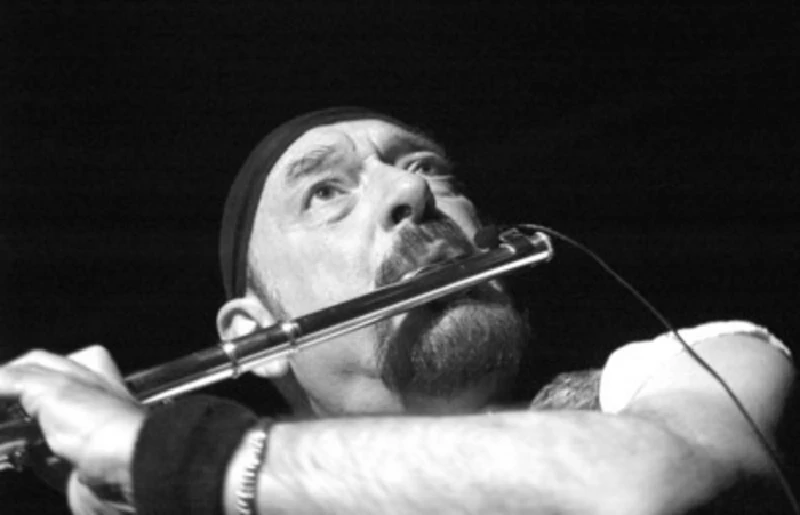

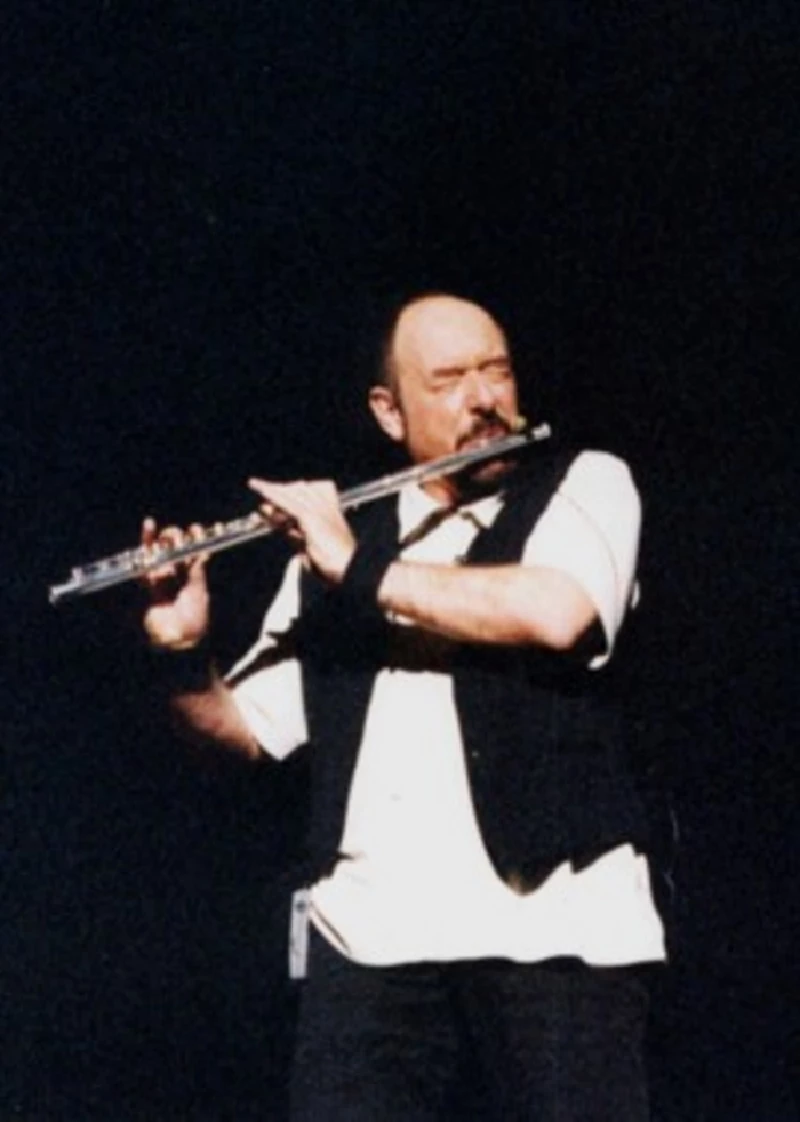
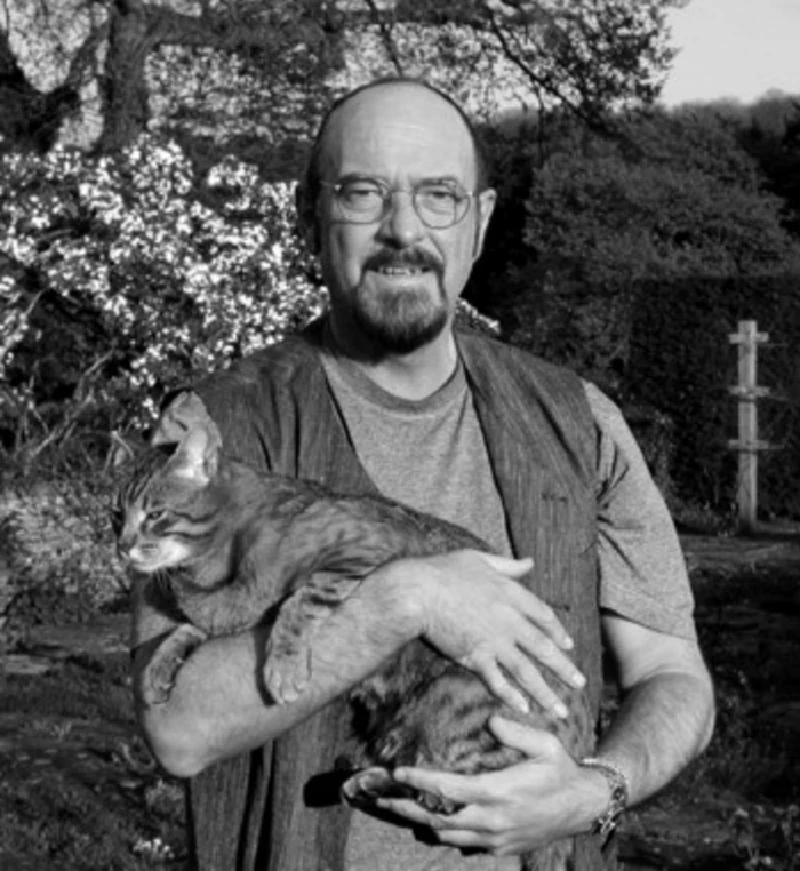
interviews |
|
Interview (2018) |
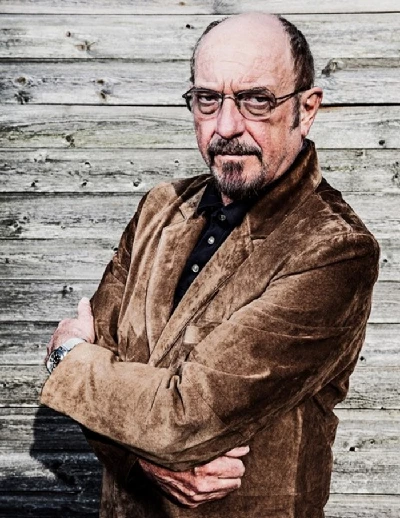
|
| Lisa Torem speaks to Jethro Tull frontman and solo artist Ian Anderson about Jethro Tull's forthcoming 50th Anniversary upcoming UK tour, his favourite autograph and the curse of collaboration. |
| Interview Part 1 (2010) |
live reviews |
|
Ravinia Festival, Highland Park, Illinois, 20/6/2010 |
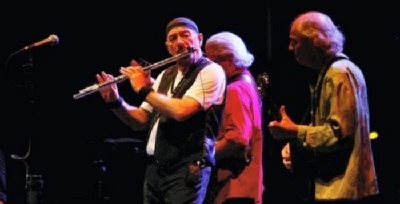
|
| At the Ravinia Festival in Highland Park near Chicago, Lisa Torem watches Jethro Tull play a crowd-pleasing, exuberant set of their best known tracks and songs |
favourite album |
|
Nothing is Easy: Live at the Isle of Wight 1970 (2013) |
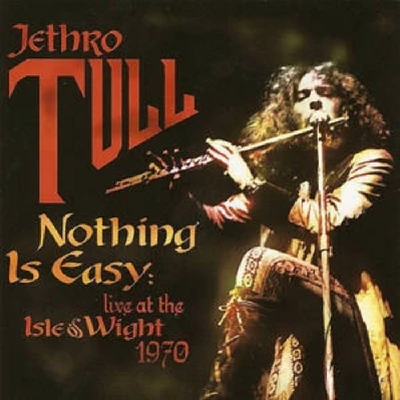
|
| In our 'Re:View' section, in which we look back at albums from the past, Carl Bookstein examines Jethro Tull's live album 'Nothing is Easy: Live at the Isle of Wight 1970', which, originally released in 2004, has just been re-released in a new CD/DVD edition |
| Aqualung (2011) |
soundcloud
reviews |
|
The String Quartets (2017) |
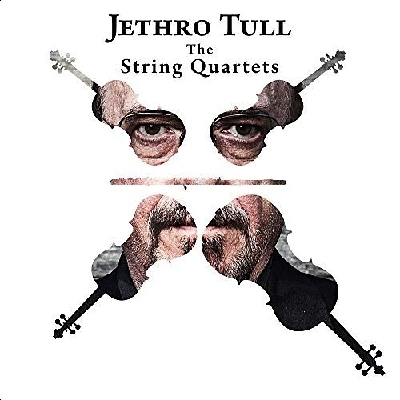
|
| Ian Anderson, John O’Hara and the Carducci Quartet celebrate and reimagine some of Jethro Tull and Anderson’s most beloved original songs in an extraordinary collaboration |
most viewed articles
current edition
Carl Ewens - David Bowie 1964 to 1982 On Track: Every Album, Every SongArmory Show - Interview with Richard Jobson
Colin Blunstone - Thalia Hall, Chicago, 16/7/2025
Visor Fest - Valencia, Spain, 26/9/2025...27/9/2025
Bathers - Photoscapes 1
John McKay - Interview
Loft - Interview
Billie Eilish - O2 Arena, London, 10/7/2025
Robert Forster - Interview
Sir Tim Rice - Interview
previous editions
Heavenly - P.U.N.K. Girl EPManic Street Preachers - (Gig of a Lifetime) Millennium Stadium, Cardiff, December 1999
Beautiful South - Ten Songs That Made Me Love...
Oasis - Oasis, Earl's Court, London, 1995
Pixies - Ten Songs That Made Me Love...
Boomtown Rats - Ten Songs That Made Me Love....
Prolapse - Interview
Trudie Myerscough-Harris - Interview
Peter Perrett - In Dreams Begin Responsibilities Interview Part One
Simon Heavisides - Destiny Stopped Screaming: The Life and Times of Adrian Borland
most viewed reviews
current edition
Amy Macdonald - Is This What You've Been Waiting For?Sick Man of Europe - The Sick Man of Europe
Lucy Spraggan - Other Sides of the Moon
Phew, Erika Kobayashi,, Dieter Moebius - Radium Girls
Davey Woodward - Mumbo in the Jumbo
Alice Cooper - The Revenge of Alice Cooper
Bush - I Beat Loneliness
Suzanne Vega - Flying With Angels
Blueboy - 2
Cynthia Erivo - I Forgive You
related articles |
|
Ian Anderson: Interview (2015 |
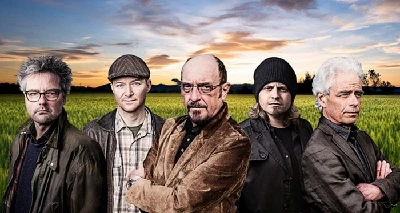
|
| Lisa Torem speaks to multi-instrumentalist and composer Ian Anderson, who is bringing to life the story of namesake and industrialist Jethro Tull in a brand new rock opera |
| Barrie Barlow: Interview (2014) |
| Ian Anderson: Interview (2014) |
Pennyblackmusic Regular Contributors
Adrian Janes
Amanda J. Window
Andrew Twambley
Anthony Dhanendran
Benjamin Howarth
Cila Warncke
Daniel Cressey
Darren Aston
Dastardly
Dave Goodwin
Denzil Watson
Dominic B. Simpson
Eoghan Lyng
Fiona Hutchings
Harry Sherriff
Helen Tipping
Jamie Rowland
John Clarkson
Julie Cruickshank
Kimberly Bright
Lisa Torem
Maarten Schiethart